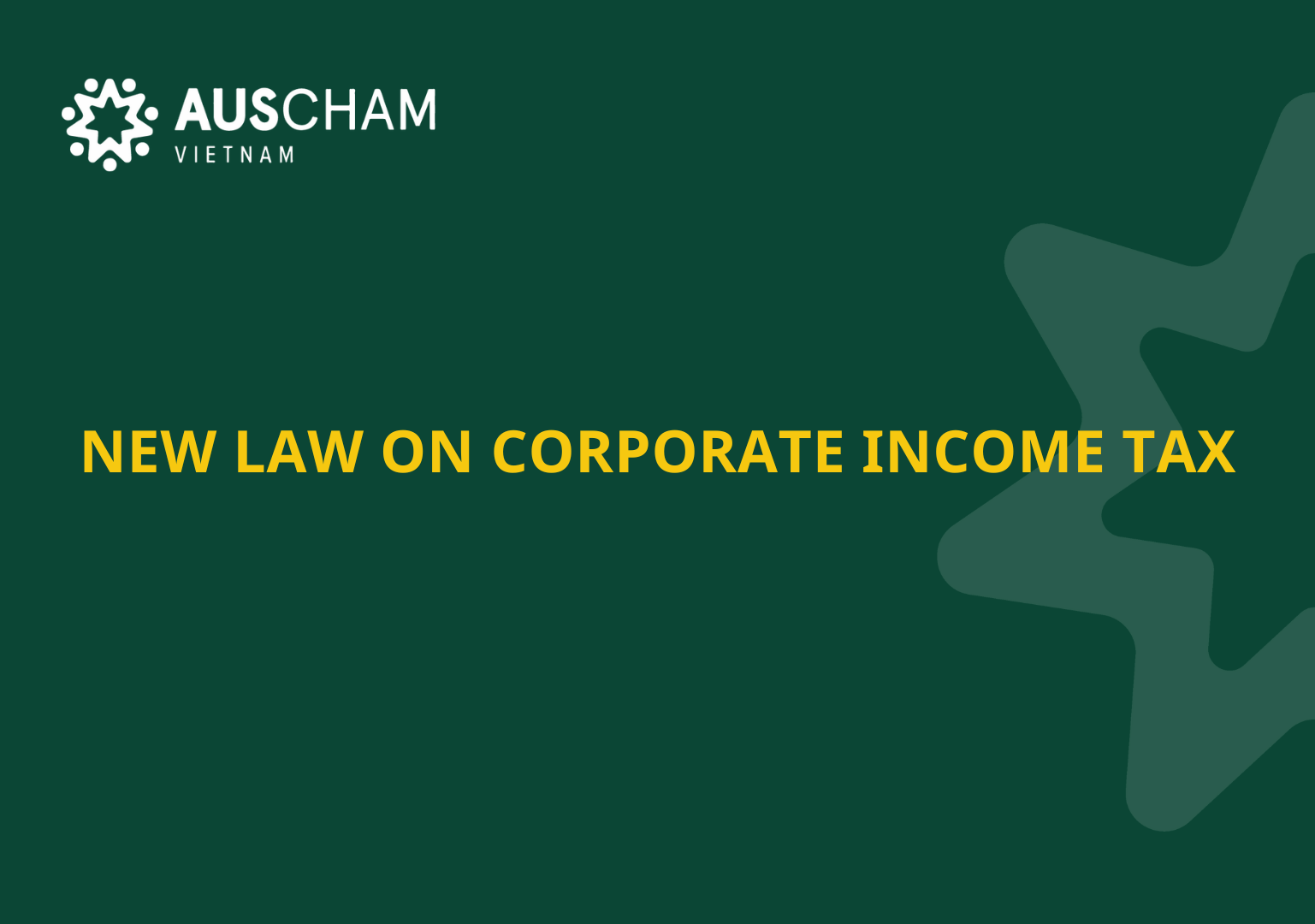National Assembly Approves Amended Corporate Income Tax Law

Hanoi, June 2025 – On June 14, 2025, during its 9th session, the 15th National Assembly of Vietnam officially passed the amended Law on Corporate Income Tax (CIT) with a high consensus—452 out of 453 delegates (94.56%) voting in favor.
The revised law will take effect on October 1, 2025, and apply to corporate income from the 2025 fiscal year onward. The amendments are designed to support small and medium-sized enterprises (SMEs), encourage investment in high-tech and priority sectors, and align Vietnam’s tax policy more closely with global standards amid increasing international tax cooperation and competition.
Key Highlights of the New CIT Law
1. Revised Tax Rates for SMEs
While the standard corporate tax rate remains at 20%, the new law introduces preferential rates for smaller enterprises based on annual revenue:
15% for businesses with annual revenue of VND 3 billion or less
17% for businesses with revenue between VND 3 billion and VND 50 billion
This is a targeted effort to alleviate financial pressure on SMEs and promote formalization and reinvestment in the private sector.
2. Reformed Tax Incentives by Sector and Location
The amended law updates the list of eligible industries and geographic areas:
Industrial parks are no longer automatically granted tax incentives.
Priority is maintained for enterprises operating in high-tech zones, IT parks, agricultural high-tech areas, and socio-economically disadvantaged regions.
Businesses involved in education, healthcare, environmental protection, and scientific R&D may continue to enjoy preferential treatment under clarified conditions.
3. Enhanced Exemption and Reduction Periods
The law streamlines the tax incentive structure:
For prioritized sectors and disadvantaged regions: up to 4 years of tax exemption followed by 9 years of 50% tax reduction
For other eligible projects: combined tax exemption and reduction for up to 6 years
In special cases, the Prime Minister may approve extensions, provided they do not exceed 1.5 times the standard incentive period
4. Incentives for Expansion Projects
Enterprises expanding production in qualified sectors or regions may also enjoy tax incentives:
Increased income from expansion may be taxed preferentially, provided it is accounted for separately.
This provision encourages businesses to scale operations without needing to establish new legal entities.
Implications for Businesses
The revised Corporate Income Tax Law represents a significant shift in Vietnam’s approach to business taxation—offering more targeted support for SMEs, better alignment with sustainable development priorities, and increased transparency in incentive allocation.
Businesses are advised to:
Review their revenue and operational scale to determine eligibility for the new SME tax rates
Assess current and future investment plans for alignment with incentive-eligible sectors and locations
Work closely with legal and tax advisors to prepare for the implementation of the law from October 1, 2025
Contact & Further Information
AusCham will continue to monitor policy developments and provide updates on implementation guidance. For questions or support in understanding how the new law may impact your business, please contact Ms Huong Tran, AusCham Head of Advocacy & Partnerships at 📩 advocacy@auschamvn.org
